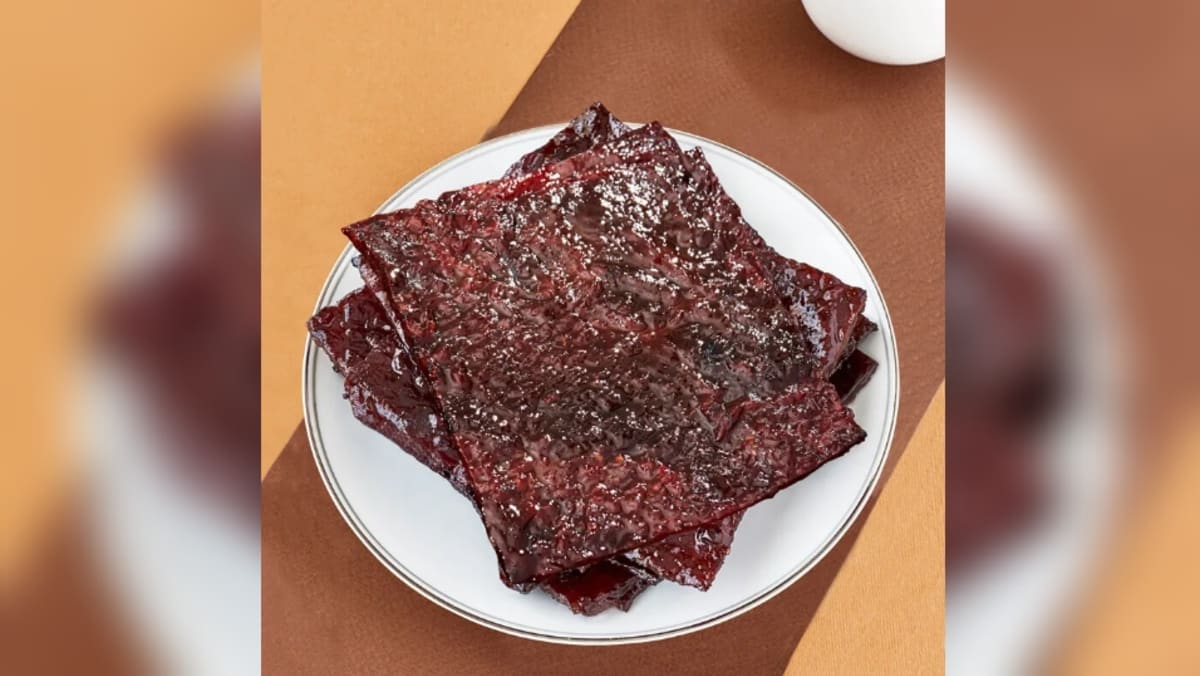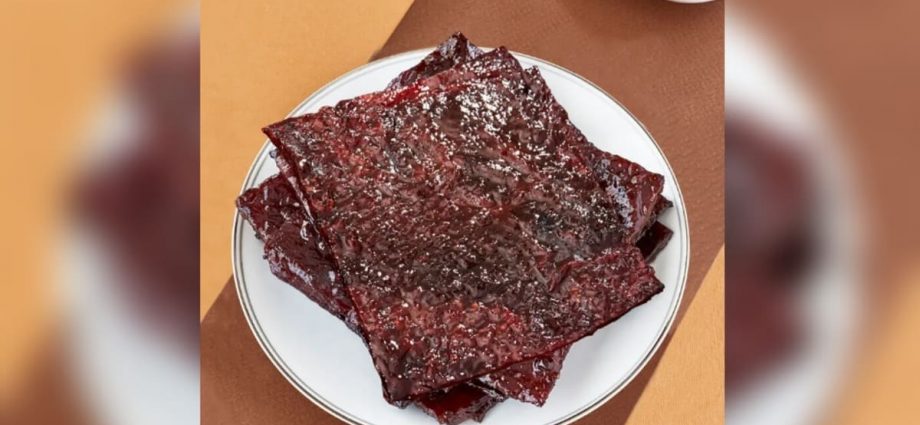
SINGAPORE: The Singapore Food Agency (SFA) has concluded that bak kwa or sweet barbecued meat poses no safety concerns, after Hong Kong’s consumer watchdog reported that compounds associated with cancer risk have been found in samples of the snack, including those from homegrown brand Bee Cheng Hiang.
A report by Hong Kong’s consumer council found high levels of carcinogenic polycyclic aromatic hydrocarbons (PAHs) in several samples of dried beef and pork snacks from various brands.
According to the South China Morning Post, the report found that potentially carcinogenic contaminant PAHs in 13 of the test samples, and Bee Cheng Hiang’s barbecued beef bak kwa contained the highest amount of four PAHs at 18.2mcg per kg, exceeding the EU limit of 12 mcg per kg by more than 50 per cent.
In a response to CNA’s query, SFA said on Friday (Mar 17) that it had conducted an assessment and found that the level reported pose no safety concerns as bak kwa is usually consumed occasionally, and not in large quantities on a regular basis.
PAHs are formed when meat is cooked on high heat, through grilling and pan-frying over an open flame.
When the fat and juices from the meat drips onto the heated surface or open fire it is grilled on, flame and smoke are produced. PAHs are found in the smoke, which then settles on the surface of the meat.
PAHs have also been associated with cancer risk, said SFA on its website.
“When consumed in moderation, PAHs in grilled and processed meats will not pose a health risk. For consumers with a balanced and varied diet, this is no cause for concern,” said SFA.
PRODUCT MEETS EU REGULATIONS: BEE CHENG HIANG
Responding to CNA’s queries, a spokesperson for Bee Cheng Hiang said the company is committed to ensuring the safety and quality of its products.
It said that in the report by the Hong Kong Consumer Council, the Hong Kong Centre of Food Safety has already given their assessment and said the detected PAHs have “little impact on public health”.
The company also said that its product meets EU regulations, as the levels of Benzo[a]pyrene, a PAH, was within EU limits. It added that the EU regulation quoted by the Hong Kong Consumer Council’s report, has been relaxed.
“We also want to assure the public that our products are in compliance with the Singapore Food Agency food safety requirements,” said Bee Cheng Hiang.

